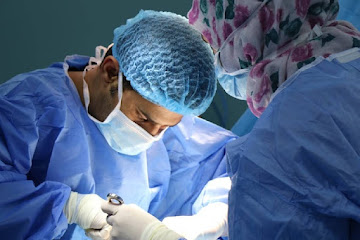Heart attack is a chronic condition where blood flow to a part of the heart muscle is blocked due to clots. Blockage in the heart prevents oxygen supply and damages the heart muscles. Immediate medical conditions are necessary for the patient to manage a heart attack. The fast process helps patients to restore blood flow to the heart and improves heart function. Symptoms such as chest pain or discomfort, shortness of breath, nausea, fatigue, and dizziness are more common. It can be managed by balancing diet, regular exercise, and avoiding alcohol and smoking. Dr. Sujay Shad, the best cardiac surgeon in India is known for his excellence at complex cardiac procedures. It is necessary to visit him at Sir Ganga Ram Hospital for a regular checkup. Regular follow-up helps in recognizing early signs of heart attack and can be cured on time.
Here are several key signs of a heart attack:
Chest Pain or Discomfort: It is a primary symptom of a heart attack. Patients feel heavy pressure, squeezing, or fullness on the left side of the chest. Pain is spread to other body parts such as arms, neck, jaws, or back. It is due to an insufficient supply of oxygen to the heart's muscles. It results in blockage in a coronary artery.
Dyspnea: Dyspnea refers to the shortening of breath, leading to a heart attack. It happens when muscles are unable to pump blood due to an adequate amount of oxygen supply to the heart muscles. This leads to fluid accumulation in the lungs. It is necessary to take immediate action to resolve this issue and prevent further complications.
Nausea: Nausea is one of the symptoms of a heart attack. It occurs due to minimal blood flow. The heart's inefficiency affects the digestive system. It may also be due to a reaction to severe pain or anxiety. It is necessary to control vomiting as it can be a sign of a heart attack. Prompt treatment is essential for effective recovery.
Dizziness and Fatigue: Dizziness and fatigue are the symptoms of a heart attack. Dizziness is due to heart impairment. The heart is not able to pump. That reduces blood flow. Fatigue refers to continuous tiredness or weakness. It's due to insufficient oxygen and nutrients in the body.
Sweating: Sweating in cold temperatures is a sign of a heart attack. Patients start sweating suddenly without doing any physical activities. It is due to the body's stress that the heart is not working effectively during a heart attack.
It is important not to ignore these signs and symptoms of heart attack. Dr. Sujay Shad is a renowned name for treating heart diseases and provides competitive heart surgery cost in Delhi. One can visit him at Sir Ganga Ram Hospital to provide the best care for their heart issues and ensure their overall well-being.









